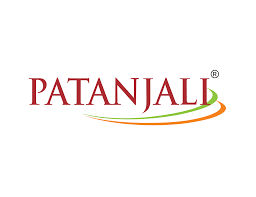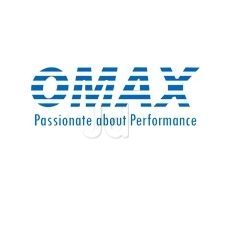











Read More
The MBA (Industry Integrated) programme at Assam down town University is an industry-synced curriculum that is designed to meet the business needs of an organization that is more volatile, uncertain, complex, and ambiguous (VUCA) in nature. This programme is segregated into three categories of learning: 40% on Domain Knowledge, 30% on Enabling Skills, and 30% on Life Skills in order to inculcate the five attributes - Deep Thinking, Self Knowledge, Holistic Learning, Communication, and Problem-Solving in an aspirant.
Year wise Course Details
Courses for this semester
This course aims to cover the basic concepts and functions of Excel to navigate the software effectively as well as to develop skills in applying advanced formatting techniques for professional-looking spreadsheets.
This course aims to recognize the basics of organizational behavior and key personality traits for workplace behavior as well as to identify and ifferentiate between various leadership theories and understand their practical applications.
This course aims to to provide students with a solid understanding of the basic concepts, history, and types of AI, and how these elements can potentially transform business practices.
This course aims to establish foundational knowledge in accounting principles and terminology as well as to understand the significance of taxation in accounting and its various types.
This course aims to to make the students understand the fundamentals and principles of economics as well as to to ascertain the role of government in the working of the economy and different types of markets.
This course aims to formulate comprehensive marketing strategies by integrating product, price, promotion, and distribution. It will enable students to identify and target specific consumer segments and B2B markets to tailor marketing approaches effectively.
This course will enable the students to analyze different interview formats (one-on-one, panel, phone) and develop strategies for successful participation in each as well as to craft a compelling resume/CV tailored to specific job applications, highlighting relevant skills and achievements.
This course aims is to encaptulate the different courses studied in the semester so that students can bring up with the application part of the learning with allocated projects.
This course aims to develop and continue the cultural and sports aspects aspects of the students. A 360 degree showcase of the talents of the students in class as well as various platforms organized in the university in order to develop confidence and remove stage fear.
Courses for this semester
This course aims to provide the students an overview of the operations management, planning and control, Scheduling and Operations Management, Quality Management and Assurance.
This series of courses guides learners through the art and science of data visualization, beginning with the fundamentals in Basics of Data Visualization with Excel and progressing to advanced techniques in Advanced Data Visualization with Excel. It also introduces Power BI for creating interactive dashboards and reports, followed by Advanced Data Visualization with Power BI, which focuses on advanced features like DAX and custom visuals. The final course, Advanced Concepts in Data Visualization, explores cross-platform design principles and storytelling techniques to create impactful, audience-centered visuals.
The "Corporate Readiness II" course is designed to equip students with the skills necessary to excel in professional environments. Through a structured curriculum, students learn to build a strong personal brand by leveraging tools like LinkedIn and other online platforms to enhance networking and career opportunities. The course also focuses on preparing students for interviews, teaching them to craft and practice responses to common, behavioral, and competency-based questions while aligning their profiles with organizational needs.
This series of courses explores the intersection of human resources and technology, beginning with Introduction to Human Resource Technology and HRMS, which provides a foundational understanding of HR systems. The courses then delve into KPIs, Reports, and Dashboards across key HR domains: Talent Acquisition (TA), HR Operations, and HR Business Partnering (HRBP), teaching you how to measure performance and derive insights. Finally, HR Technology and Analytics integrates these concepts, focusing on leveraging technology and data analytics to drive strategic HR decision-making.
Sales and Marketing Distribution focuses on the principles, strategies, and processes involved in effectively managing sales and distribution channels to meet organizational goals. The course covers key aspects of sales management, including building and leading a sales team, understanding customer needs, and developing relationship-building techniques. It also explores the design and management of distribution channels, logistics, and supply chain networks to ensure products and services reach customers efficiently. Students will gain practical insights into integrating sales and distribution strategies, addressing challenges in channel management, and leveraging technology to optimize performance in a competitive marketplace.
The course on Financial Management and Corporate Finance offers a comprehensive understanding of financial decision-making in businesses, focusing on maximizing shareholder value and achieving organizational goals. It covers fundamental principles and advanced techniques used in corporate financial planning, investment decision-making, capital structure management, and financial performance evaluation. Students will explore key areas such as the time value of money, risk assessment, capital budgeting, working capital management, and financial instruments. The course also delves into corporate finance strategies, including mergers and acquisitions, dividend policy, and corporate governance.
This course explores innovative and transformative business models shaping the modern economy in an era defined by technology, globalization, and sustainability. Students will delve into cutting-edge concepts such as platform-based businesses, the gig economy, subscription services, and circular economy models.
Courses for this semester
This course will enable the students to recognize the concept, process, and importance of business analysis, explore advanced functions in Excel for effective data analysis as well as create and set up interactive dashboards using pivot charts, and tables.
This course aims to utilize the STAR Method to construct clear and concise narratives during mock interviews, effectively showcasing relevant skills and experiences. Demonstrate active listening and structured communication techniques while participating in simulated group discussions.
This course aims to develop a solid understanding of the fundamental concepts and principles of cost accounting, including cost components, classification, and various costing methods.
Aims to gain insight into capital markets' structure, functioning, and regulatory frameworks, including primary and secondary markets, stock exchanges, and new issue markets.
This course aims to recognize the importance of efficient procurement in achieving organizational success and identify strategies for optimizing procurement processes.
This course aims to Explain the role of HR in career development and challenges. Understand different training processes and methods .
This course aims to Recognize the importance of effective recruitment in achieving organizational goals and competitive advantage.
This course aims to Identify and describe the stages of the employee lifecycle from entry to exit, emphasizing key HR interventions at each stage.
This course will enable the students to Understand the fundamentals of brand management and its importance in the marketplace. Analyze the market and media landscape to create effective marketing strategies.
This course aims to teach students how to plan and design an effective website, including the creation of a sitemap and wireframes. Students will learn how to measure the success of their website and marketing efforts using analytics tools such as Google Analytics.
This course aims to Gain foundational knowledge of marketing analytics principles and techniques. Understand and utilize key performance indicators (KPIs) to measure marketing effectiveness.
This course aims to Equip students with the ability to apply mathematical modeling, optimization techniques, and analytical methods to solve complex problems.
This course aims to provide an understanding of logistics as a business function and its role in supply chain management.
This course aims to develop and continue the cultural and sports aspects aspects of the students. A 360 degree showcase of the talents of the students in class as well as various platforms organized in the university in order to develop confidence and remove stage fear.
Courses for this semester
This course provides students with the essential skills and knowledge to analyze and interpret financial data for decision-making purposes. Topics include financial statement analysis, ratio analysis, cash flow analysis, forecasting, and valuation techniques. Students will learn to evaluate the financial health of businesses, assess investment opportunities, and develop insights to support strategic planning and financial performance improvement.
This course introduces the principles and processes of design thinking, an innovative, human-centered approach to problem-solving and creativity. Students will learn to empathize with users, define challenges, ideate potential solutions, prototype concepts, and test outcomes in iterative cycles. The curriculum emphasizes collaboration, critical thinking, and practical application, equipping students to tackle complex problems across industries such as business, technology, education, and social innovation. Topics include empathy mapping, user research, brainstorming techniques, prototyping tools, and feedback analysis.
This course provides an in-depth exploration of the principles, strategies, and practices involved in marketing communication. Students will learn how to create and deliver persuasive messages that effectively reach and engage target audiences. The curriculum covers key topics such as branding, advertising, public relations, social media, digital marketing, and integrated marketing communication (IMC).
This course provides a hands-on introduction to essential business management tools and applications that enhance organizational efficiency and streamline operations. It focuses on developing proficiency in using digital tools for collaboration, data management, and decision-making, enabling participants to optimize productivity and improve business processes. Key components include mastering G-Suite applications for seamless communication and collaboration, leveraging advanced Excel functions and shortcuts for data analysis, and efficiently managing documents and PDFs. The course also introduces SQL fundamentals and Power BI for effective data retrieval, analysis, and visualization, equipping learners with the skills needed for modern business intelligence. By the end of the course, participants will have the technical knowledge and practical expertise to utilize these tools effectively, empowering them to drive organizational productivity and support informed decision-making.
This course aims to identify and understand effective data cleaning and preparation techniques to optimize HR data for analysis. Compare HR metrics across industries and benchmark them using global standards. It will also enable the students to identify emerging trends, such as cloud-based HR services and the gig economy, in HR outsourcing.
This course aims to introduce the importance of a professional introduction in career development. It will enable students to utilize storytelling techniques in interviews as well as to maintaining condent body language during interviews and build resilience in handling stress interviews.
This course delves into the critical role of services in the economy and their influence on business growth and success. Participants will explore how to develop and implement service strategies that enhance competitiveness and drive organizational excellence. Key areas of focus include aligning service strategies with business objectives, leveraging KPIs and dashboards for customer engagement, and utilizing the internet to optimize service offerings. The course also covers designing efficient delivery systems for seamless execution and applying operations management principles and analytics to improve service processes and performance. Through case studies, practical tools, and hands-on activities, this course equips learners with the knowledge and skills to manage and optimize service operations effectively in a dynamic business environment.

CST- Common scholarship test is a national and international level online MCQ based examination funded for intellectual empowerment by Assam down town University.
CST- Maximum enrolment each year is 269 seats and any 10+2 students can apply. Adtu is northeast India’s first placement driven university to provide 100% scholarship benefits worth 30 cr.
CST aims to inspire brilliant and competent students to pursue further education. Accredited with a prestigious grade by NAAC, UGC and AICTE.
Explore more scholarships that can help you reach out your goal with financial aid.
This scholarship is valid on the basis of the board/university examination
| 95% & above | 100% Scholarship on all semester |
| 90%-94.9% | 50% Scholarship on all semester |
| 80%-89.9% | 25% Scholarship on all semester |
This scholarship is valid on the basis of the board/university exam
| National & International Level | 100% Scholarship on all semester |
| State Level | 50% Scholarship on all semester |
| District Level | 25% Scholarship on all semester |
This scholarship is valid on the basis of the board/university exam
| National & International Level | 100% Scholarship on all semester |
| State Level | 50% Scholarship on all semester |
| District Level & NCC Certificate Holder | 25% Scholarship on all semester |
Discover a multitude of world-class amenities and cutting-edge resources at Assam down town University, enhancing your academic journey to new heights.
The Start-Up & Incubation Centre at Assam down town University provides a supportive environment for young entrepreneurs to develop and grow their business ideas. The center provides mentorship, funding, and networking opportunities to help innovative ideas become successful businesses.
SFURTI scheme to support rural entrepreneurs and innovators, an initiative by the Ministry of MSME
TIDE 2.0 scheme for ICT-based startups which provides a grant of Rs. 4L and Rs. 7L under EiR and Grant categories respectively, an initiative by the Ministry of MeitY.
dtVL Ideation, an incubation program for early-stage entrepreneurs with a market-ready solution/product, offering interest-free loans up to Rs. 2 lakhs.
Sprout UP, an incubation program for students, faculties, and researchers with innovative business ideas, prototypes, or technology solutions.



















.png)






























"I am a BBA student of 3rd semester. I hail from Bhutan. I vow that I am having a great experience i...
"AdtU is amazing. I am a BBA student of 2019-22 batch and I am just grateful for the amount of oppor...
Let us be grateful to the people and place who makes us happy. They are the charming gardeners whom ...
Currently I am pursuing MBA in Assam Down Town University. MBA is the professional course through wh...
AdtU is a university that focuses on giving knowledge, education and simultaneously making the stude...
The Assam downtown University has been a great learning experience. The university has provided me w...
My experience with AdtU has been splendid one indeed. Little needs to said about its scenic infrastr...
As a student I am very glad that I have got an opportunity to study here in Assam downtown universi...
My name is Sakhyajit Roy. I?m from Tripura. I joined the university on Auguest, 2017 as a student of...
I share immense pleasure to share my post graduate program experience in Assam down town University....
AdtU is a platform where I got golden opportunities to feed my zeal for knowledge through the dynami...
I am fortunate to get an opportunity to study here in Assam Downtown University. The best thing abou...
Our university is one of the best place for developing ourselves in the field of research and acedem...
ADTU is a university that is very good interms of infrastructure, academics and placements. Our tea...
It is one of best private colleges in North East India, it also provides a good environment for ed...
ADTU is a good University which provides the students with best quality lectures and ensures comfort...
The environment of Assam downtown university is very pleasant.The department of BMLT is very good a...
The university has all the necessary facilities and amenities for students . The classrooms and the ...
Assam downtown University is well recognised all over india. In the ongoing pandemic situation it ha...








